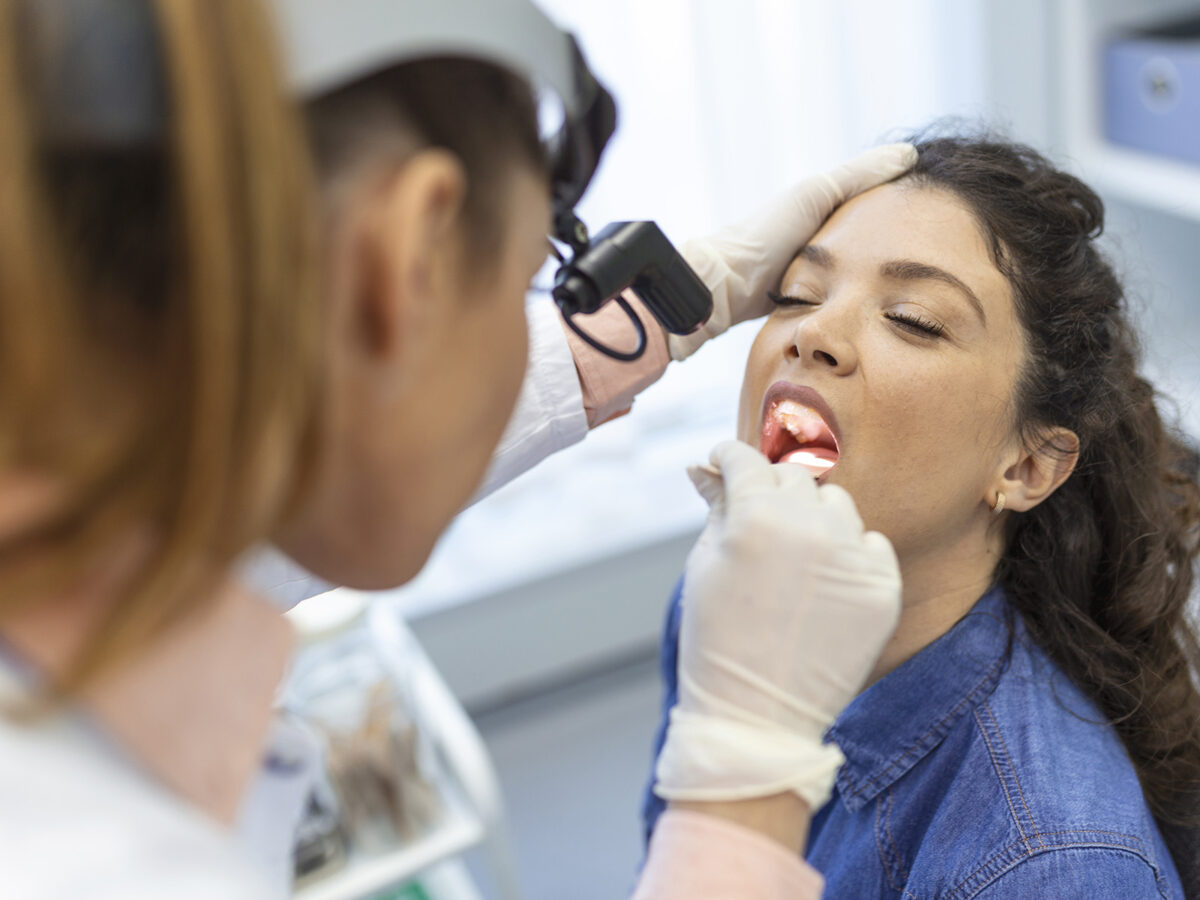Blog
Dental hygiene tips for healthy teeth & gums

Understanding The Significance of Oral Cancer Screening
Regarding our health, we often prioritize regular check-ups for vital organs like the heart, lungs, and kidneys. However, one area that is frequently overlooked is oral health. The significance of oral cancer screening cannot be emphasized enough. This article will explore why oral cancer awareness is vital, what it involves, and how it can save lives.
What is Oral Cancer?
Oral cancer is a type of cancer that can affect any part of the mouth, including the lips, tongue, cheeks, and throat. It often begins as a small, painless sore or lump but can progress rapidly if not detected and treated early. While anyone can develop oral cancer, certain factors increase the risk, such as smoking, excessive alcohol consumption, and a family history of cancer.
The Importance of Oral Cancer Awareness and Early Detection
Early detection is the key to successfully treating oral cancer. Unfortunately, many cases are not diagnosed until they have reached an advanced stage, making treatment more difficult and less effective. It is why oral cancer awareness and regular screening are so crucial.
Who Should Get Screened?
Oral cancer can strike anyone, but some individuals are at higher risk than others. If you fall into any of the following categories, it’s especially important to get screened:
- Tobacco Users: Smoking and using smokeless tobacco products are major risk factors for oral cancer. If you smoke or use tobacco, regular screenings are essential.
- Heavy Alcohol Consumers: Excessive alcohol consumption is another significant risk factor. Using tobacco and alcohol together increases the risk even further.
- HPV Infection: Human papillomavirus (HPV) infection is a known risk factor for oral cancer. If you have a history of HPV infection, discuss screening with your healthcare provider.
- Family History: Your risk may be elevated if you have a family history of oral cancer. Inform your healthcare provider about your family’s medical history.
What Does Oral Cancer Awareness Screening Involve?
Oral cancer screening is a painless and straightforward process that can be done during a routine dental check-up or medical examination. A screening will involve the following:
- Visual Examination: The healthcare provider will start by visually inspecting your mouth, looking for any abnormalities, such as sores, lumps, or white or red patches.
- Physical Examination: They may also use gloved hands to feel for lumps or irregularities in the oral cavity and neck.
- Advanced Techniques: Sometimes, your healthcare provider may use advanced tools such as a light or dye to enhance the examination.
- Biopsy: If any suspicious areas are found, a small tissue sample (biopsy) may be taken for further analysis. It helps confirm whether cancer is present.
Benefits of Oral Cancer Screening
- Early Detection: The primary benefit of oral cancer awareness and screening is the early detection of cancerous or precancerous lesions. Early-stage oral cancer is highly treatable, with a much better prognosis than advanced-stage cancer.
- Peace of Mind: Regular screening can provide peace of mind, knowing that your oral health is being actively monitored. It allows for prompt intervention if any issues arise.
- Cost-Effective: Early detection and treatment of oral cancer are life-saving and cost-effective. Treating advanced-stage cancer is far more expensive and challenging.
Conclusion
In conclusion, oral cancer screening is a simple yet incredibly significant aspect of maintaining your overall health. Whether you fall into a high-risk category or not, regular screenings should be a part of your healthcare routine. Early detection through oral cancer screening can save lives, improve treatment outcomes, and ultimately lead to a healthier and happier life.
Remember, your oral health matters, and taking proactive steps like screening can make all the difference. So, the next time you visit your dentist or healthcare provider, don’t hesitate to ask about oral cancer screening—it might just be one of the most important conversations you ever have about your health.


